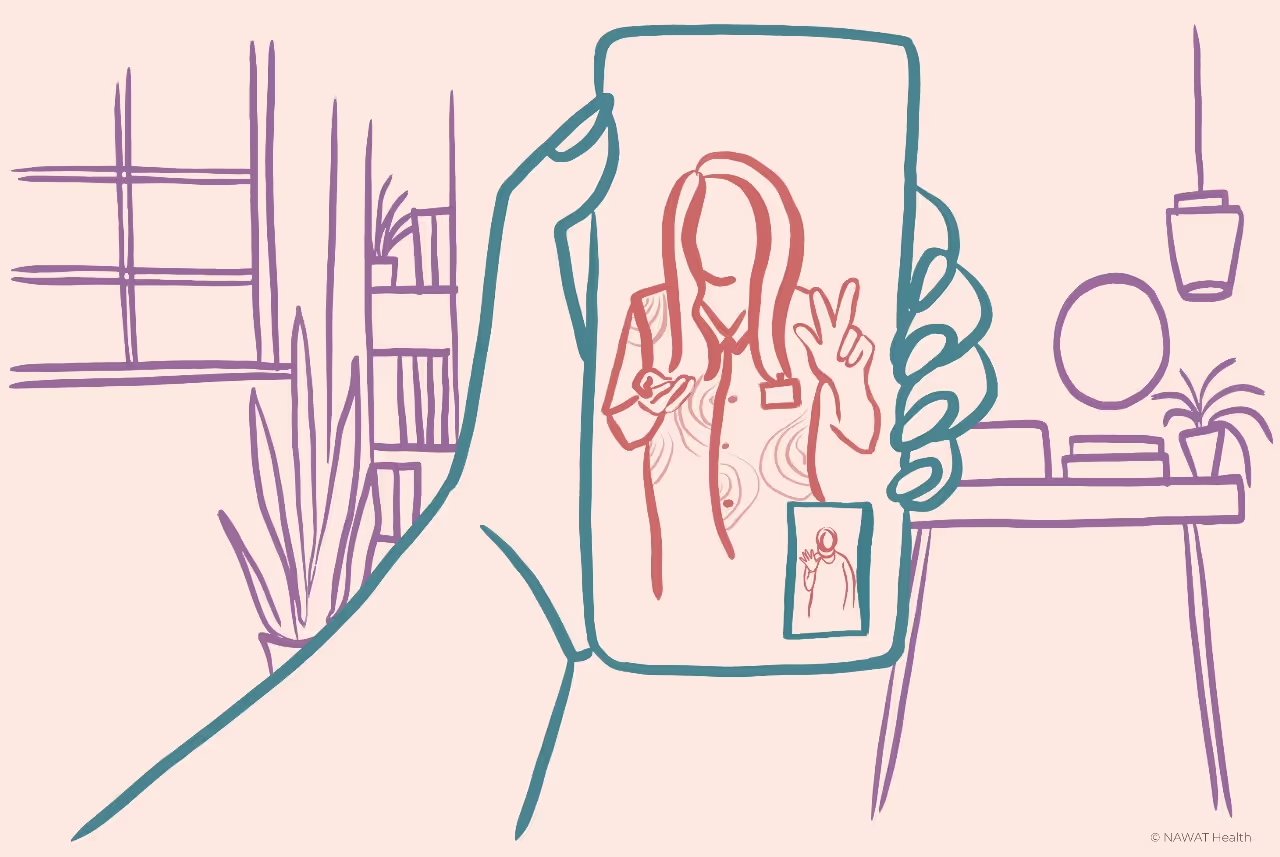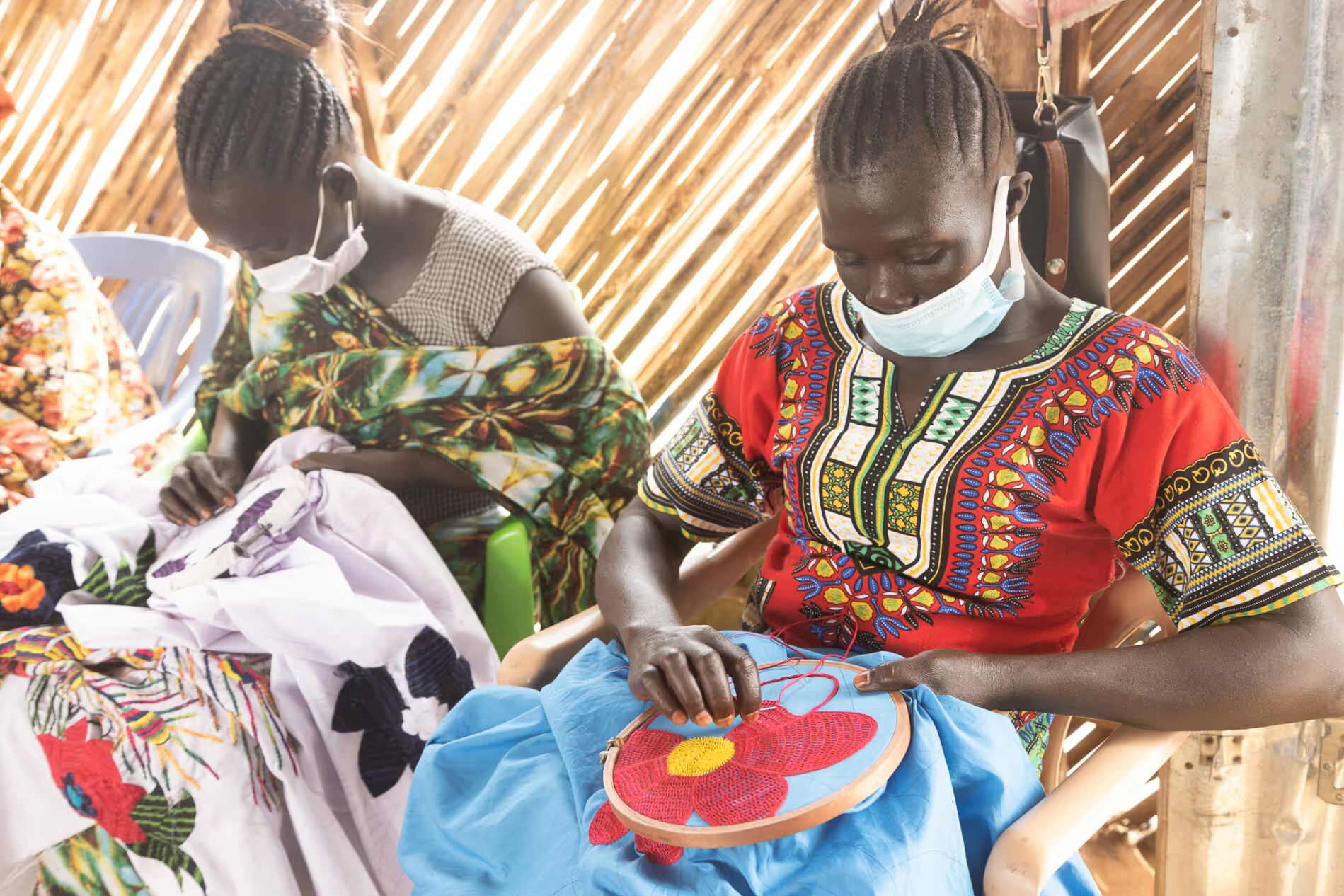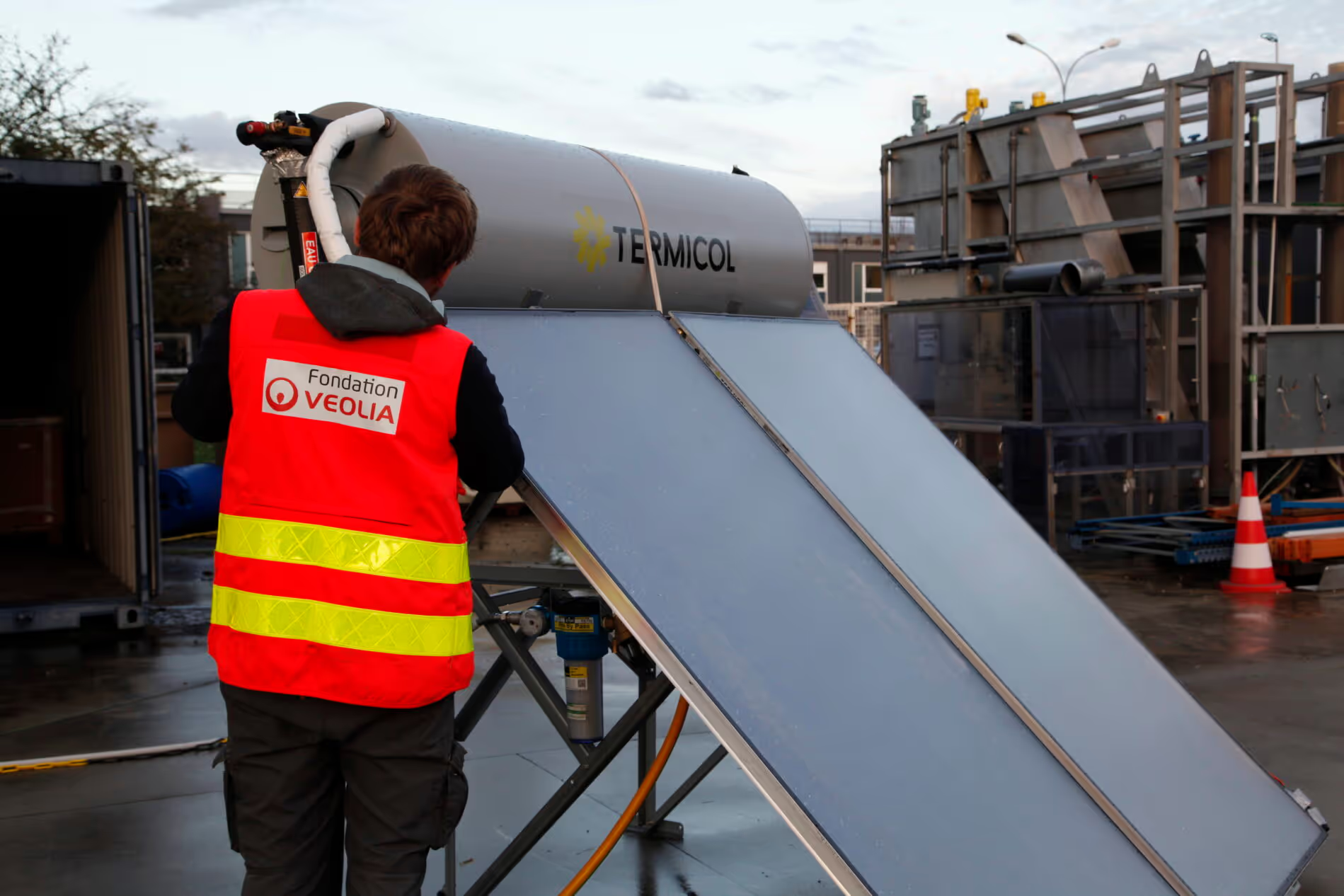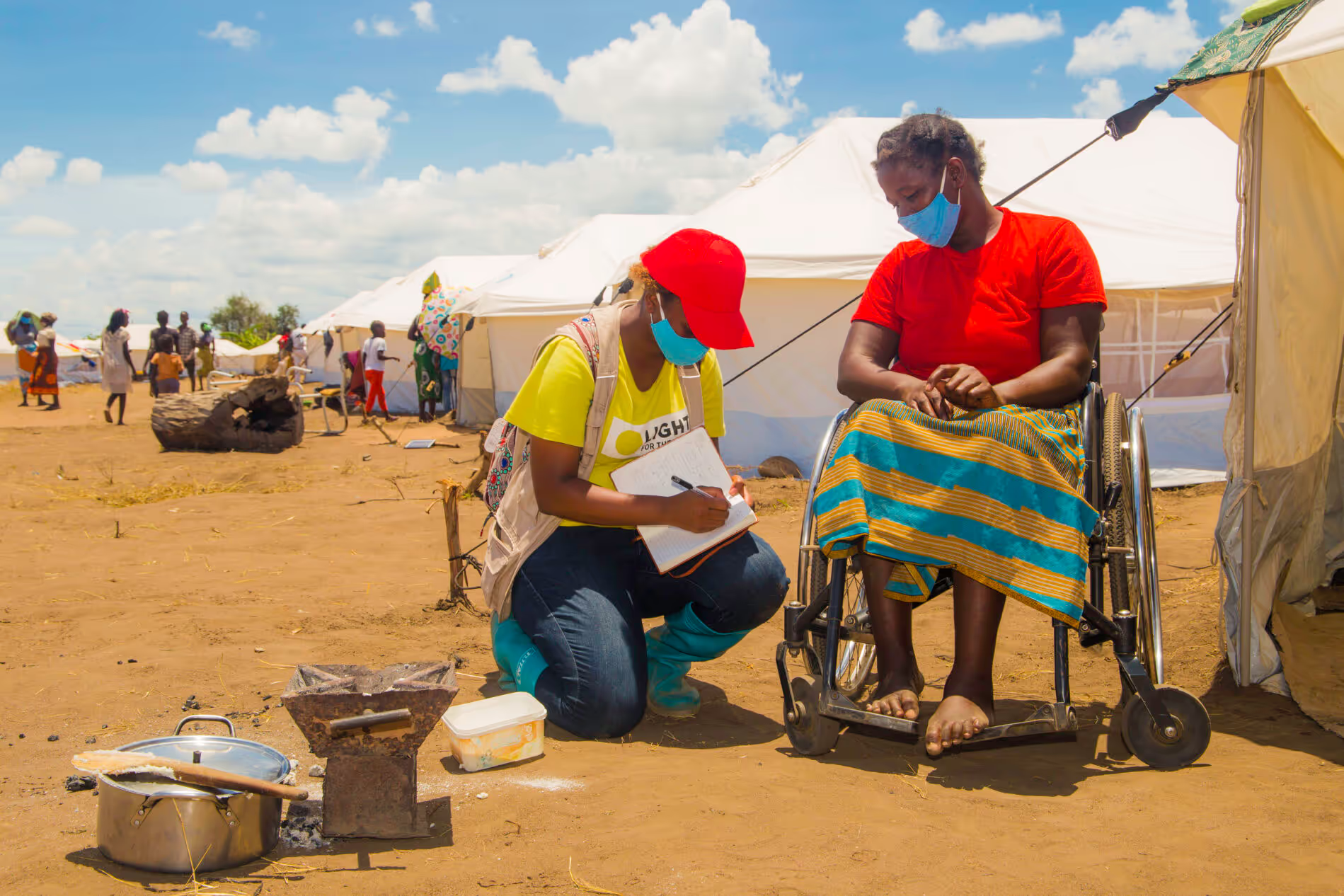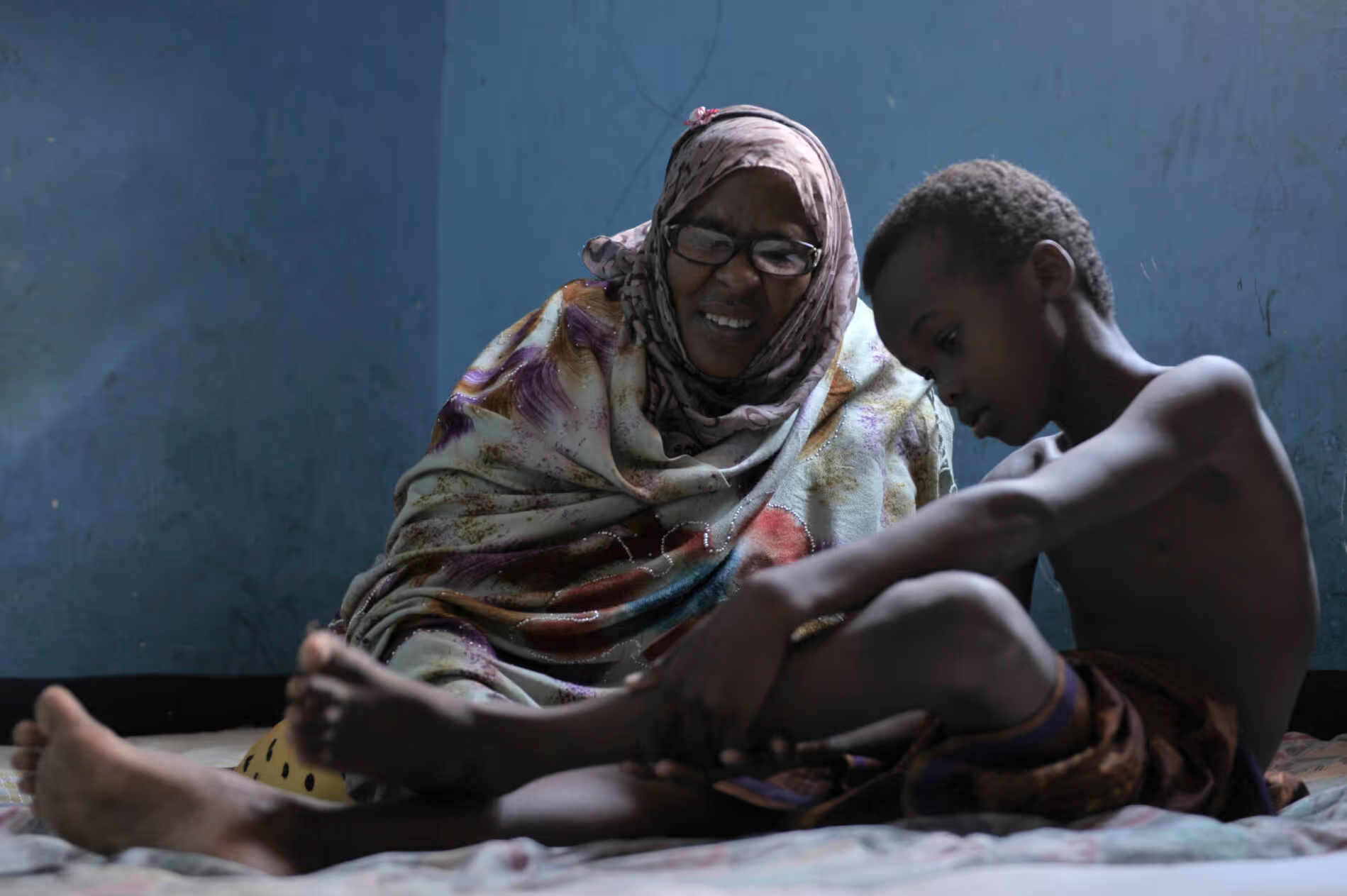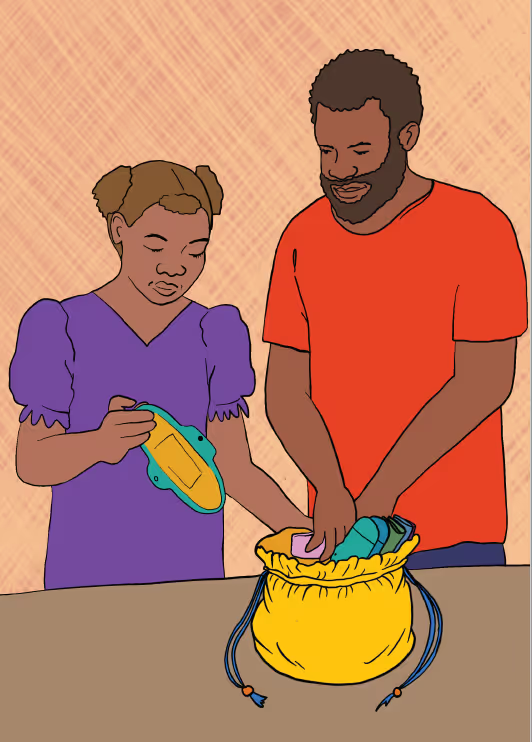Shifting Humanitarian Norms: Prioritising safe‚ dignified and inclusive MHM for women with cognitive impairment in emergencies
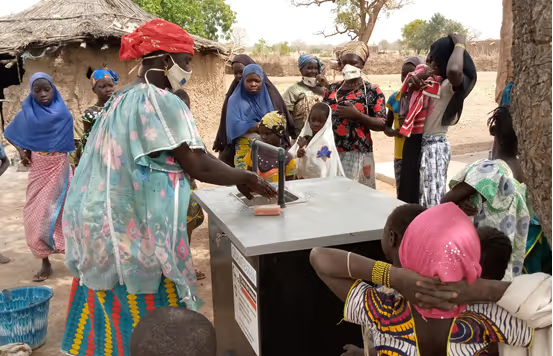
Project overview
A menstrual health intervention for women and girls with intellectual disabilities, and their carers.
Project solution
This project offers [specific solution or intervention] to tackle [challenge]. By implementing [strategies, tools, or innovations], the project aims to achieve [desired outcomes]. The approach is designed to [specific actions or methods] to bring about meaningful change in [community, region, or issue area].
Expected outcomes
This project aims to achieve [specific outcomes], such as [measurable results, improvements, or changes]. The expected impact includes [benefits to the target community, advancements in research or innovation, or long-term effects]. By the end of the project, we anticipate [specific changes or milestones] that will contribute to [broader goals or objectives].
What humanitarian need is being addressed?
The humanitarian sector is increasingly recognising the need to prioritise menstrual health and hygiene. However, while the numerous challenges of women and girls with disabilities have started to be considered, those with intellectual disabilities haven’t yet been taken into account.
This group experiences the same menstrual health challenges as women and girls with disabilities - exclusion from policies, inaccessible WASH facilities, and a lack of support and guidance for themselves or their caregivers, for example. But women and girls with intellectual disabilities often need more holistic, customised support because of their additional communication needs and high reliance on carers. They may also face extreme outcomes of inadequate menstrual health, such as physical restraint, abuse and sterilisation.
What is the innovative solution?
The Veivanua Project was a campaign to help women and girls with intellectual disabilities, and their carers, understand and manage menstruation. Set in Sanma Province, Vanuatu, it was the first intervention of its kind in humanitarian response, following the innovation’s trial in a development context in Nepal (the Bishesta campaign).
The Veivanua Project involved 30 young women and girls with intellectual disabilities, and 35 male and female caregivers. It aimed to improve caregivers’ ability to provide support, and to build women and girls’ autonomy, confidence and agency when menstruating, equipping them to cope during humanitarian crises when challenges become even greater.
Young women and girls were each given a ‘period pack’ containing a menstrual storage bag, reusable menstrual materials, a small drawstring bag and a menstrual bin. There was a menstrual calendar for caregivers to track the young woman’s menstrual cycle. Also included was a doll named ‘Veivanua’, representing a young girl with an intellectual disability, and ‘Votahenavanua’, her carer. A visual story in the pack depicted Veivanua menstruating for the first time and her parents helping her understand menstruation and how to manage it hygienically and with dignity. The story showed how to prepare for a humanitarian emergency, which included remembering to take the menstrual storage bag with them whilst evacuating.
Each Veivanua doll came with removable clothes and underwear. The young women and girls learned how and when to change their menstrual materials and how to dispose or wash and dry them. And they were helped to understand menstrual discomforts and how to relieve them.
What progress has been made?
The project team’s feasibility study found that the campaign successfully supported people with intellectual disabilities and their carers to better manage menstruation in emergencies.
Improvements were recorded across all target behaviours. Participants said that they would evacuate with the period packs in the next emergency and that the campaign had made them feel better prepared. Male and female caregivers noted an improvement in their ability to provide better-quality menstrual care and in the young person’s ability to manage menstruation more independently.
As a result of the feasibility study, both World Vision Vanuatu and Vanuatu Society for People with Disability incorporated the intervention in other projects.
Progress has also been made through the team’s publication of its:
- systemised review exploring the global evidence on disability inclusion in menstrual health efforts in emergencies.
- formative research exploring the menstrual health experiences of women and girls with intellectual disabilities, and their caregivers, during emergencies in Vanuatu.
- practitioners’ guide to support other humanitarian, WASH, and disability actors to adapt the campaign to their setting or context.
Innovation potential
The innovation is an important step towards easing some of the difficulties faced by people in the most challenging situations and could be used in a range of other contexts - both humanitarian and cultural.
The team is exploring ways of bringing about practical improvements in the lives of women and girls with intellectual disabilities based on learnings from the Veivanua Project. One area of focus is the use of period underwear, which proved popular during a pilot run within the project. World Vision has partnered with Reemi, a New Zealand-based social enterprise (and another recipient of Elrha funding), to test the suitability of period underwear as an alternative, environmentally sustainable menstrual material for future humanitarian responses.
[.slimline-cta-box][.slimline-cta_heading]Links to more information[.slimline-cta_heading][.slimline-cta_paragraph]Adapting Menstrual Health Interventions for People with Intellectual Disabilities in Emergencies – Frontiers of Sanitation[.slimline-cta_paragraph][.slimline-cta-box]
Project delivery & updates
Stay up to date with the latest developments from this project. Here, you will find details on what has been delivered, resources created, and regular updates as the project progresses. Access key documents, reports, and other materials to see how the project is making an impact.
Resources
Report
LEARN MORECase study
LEARN MORE
